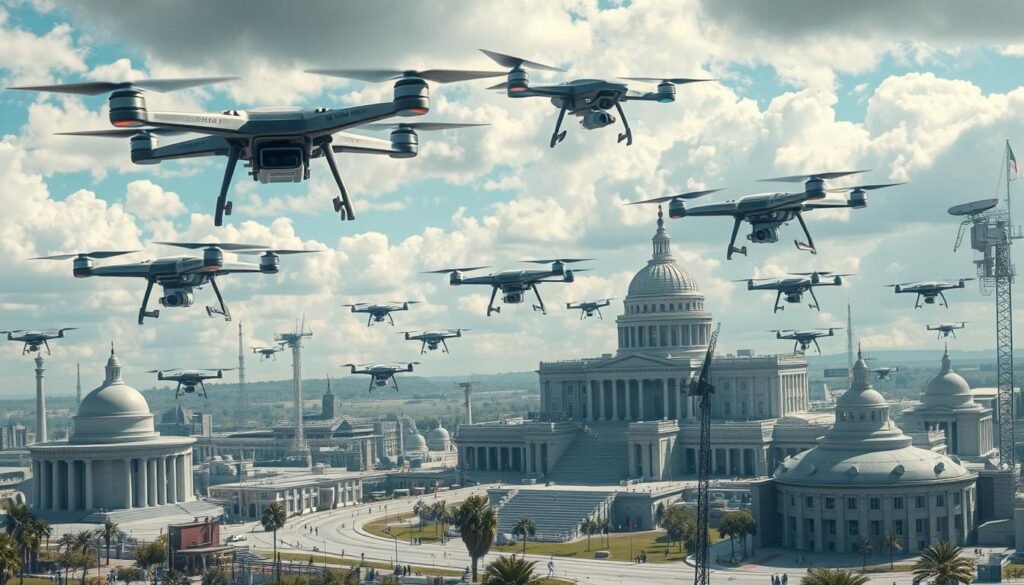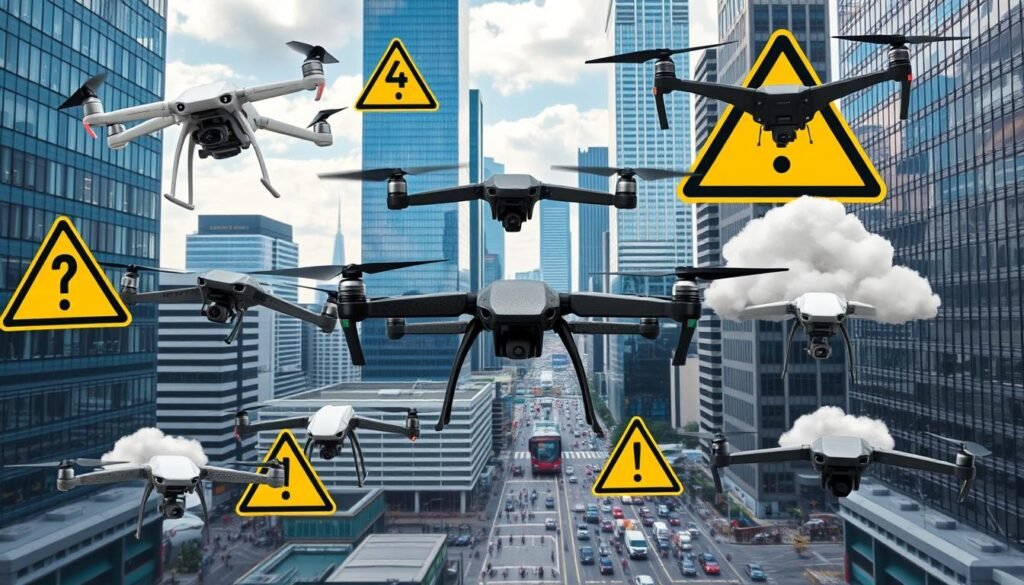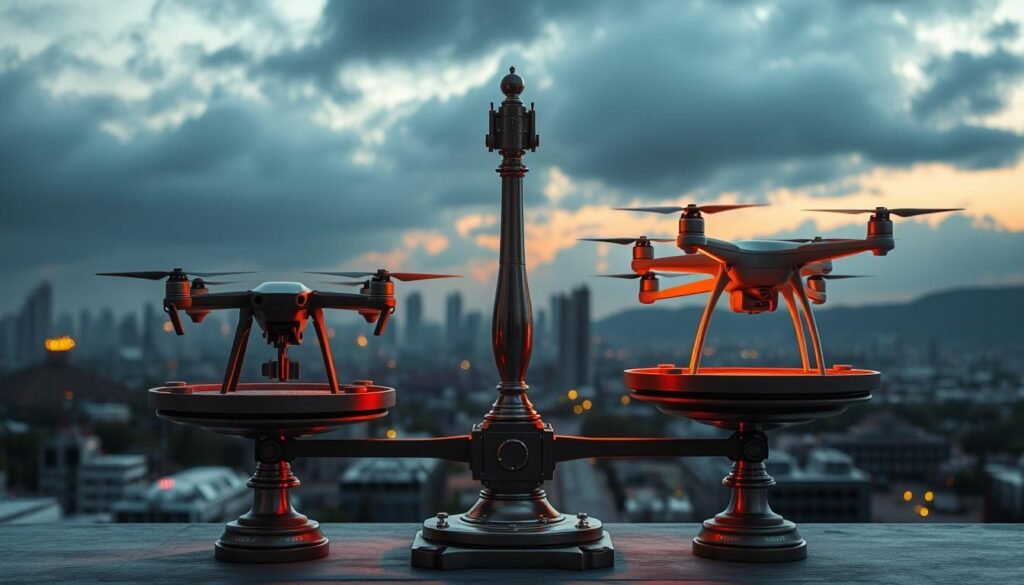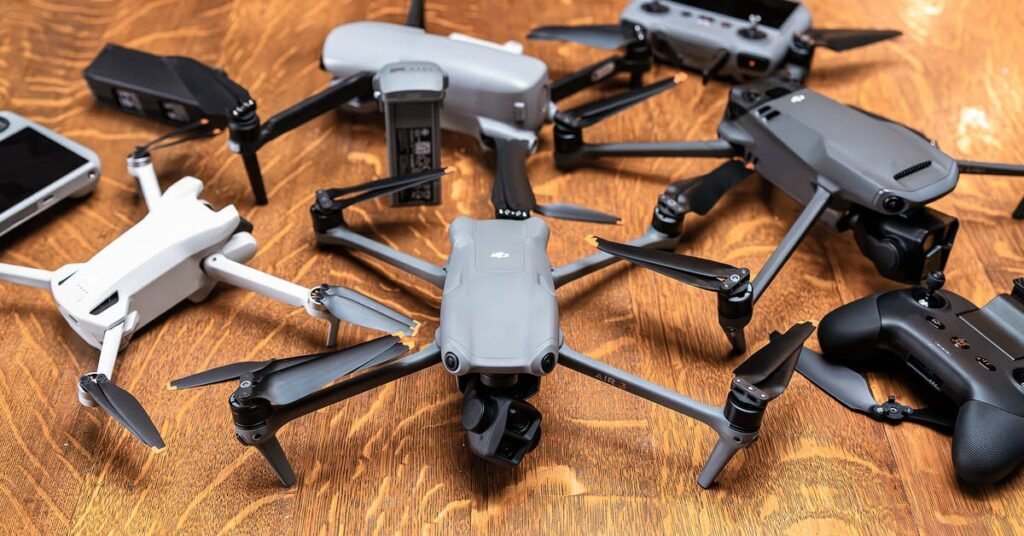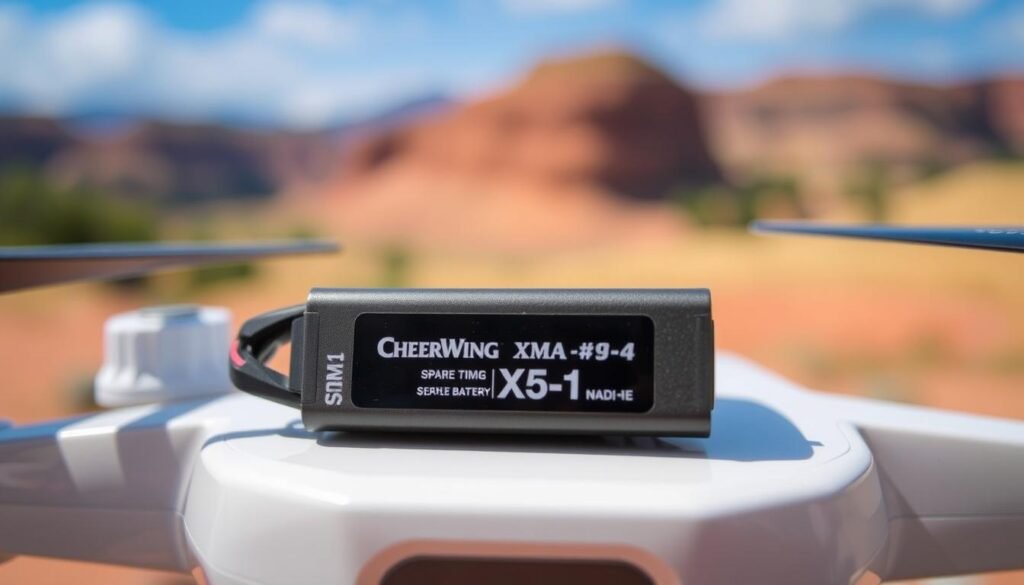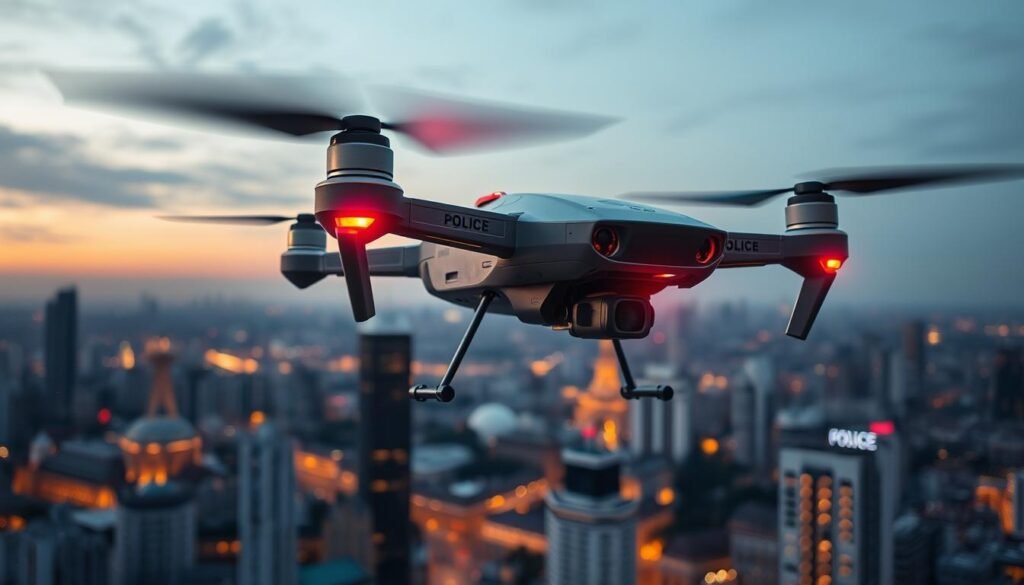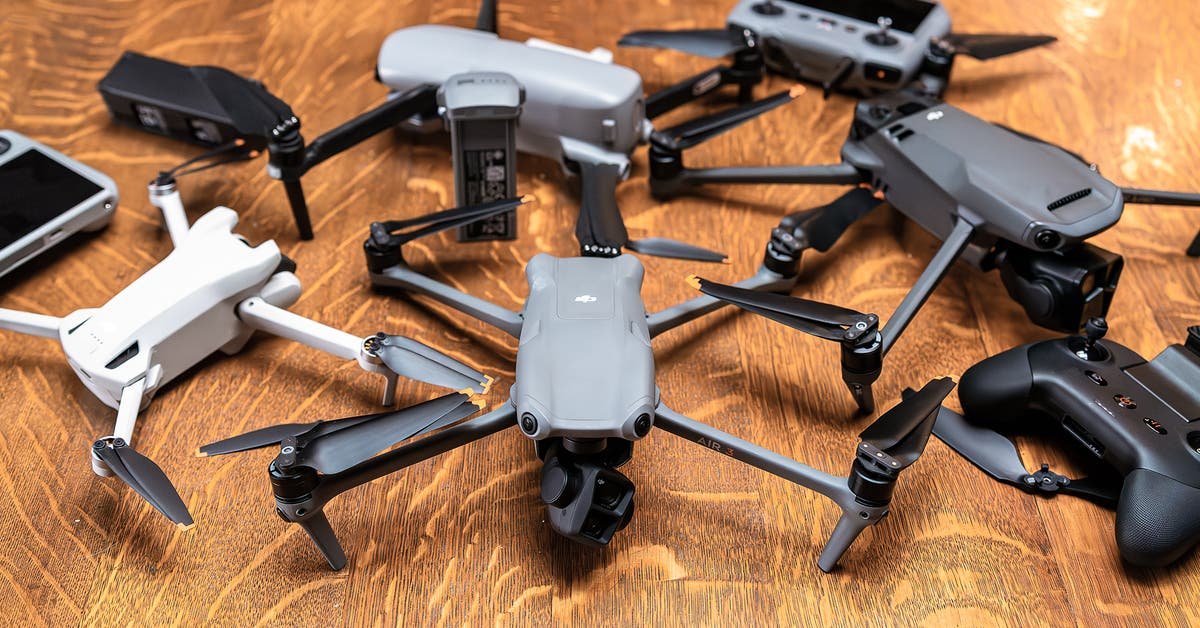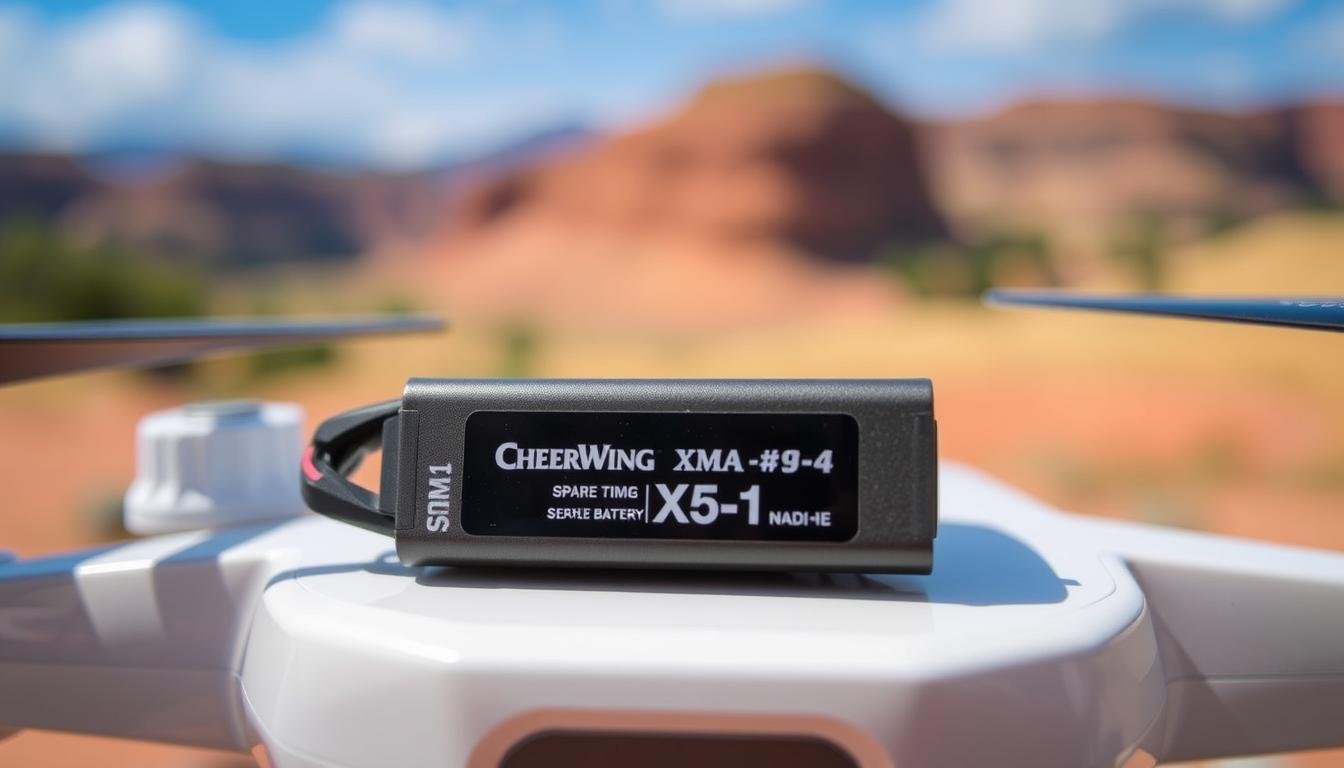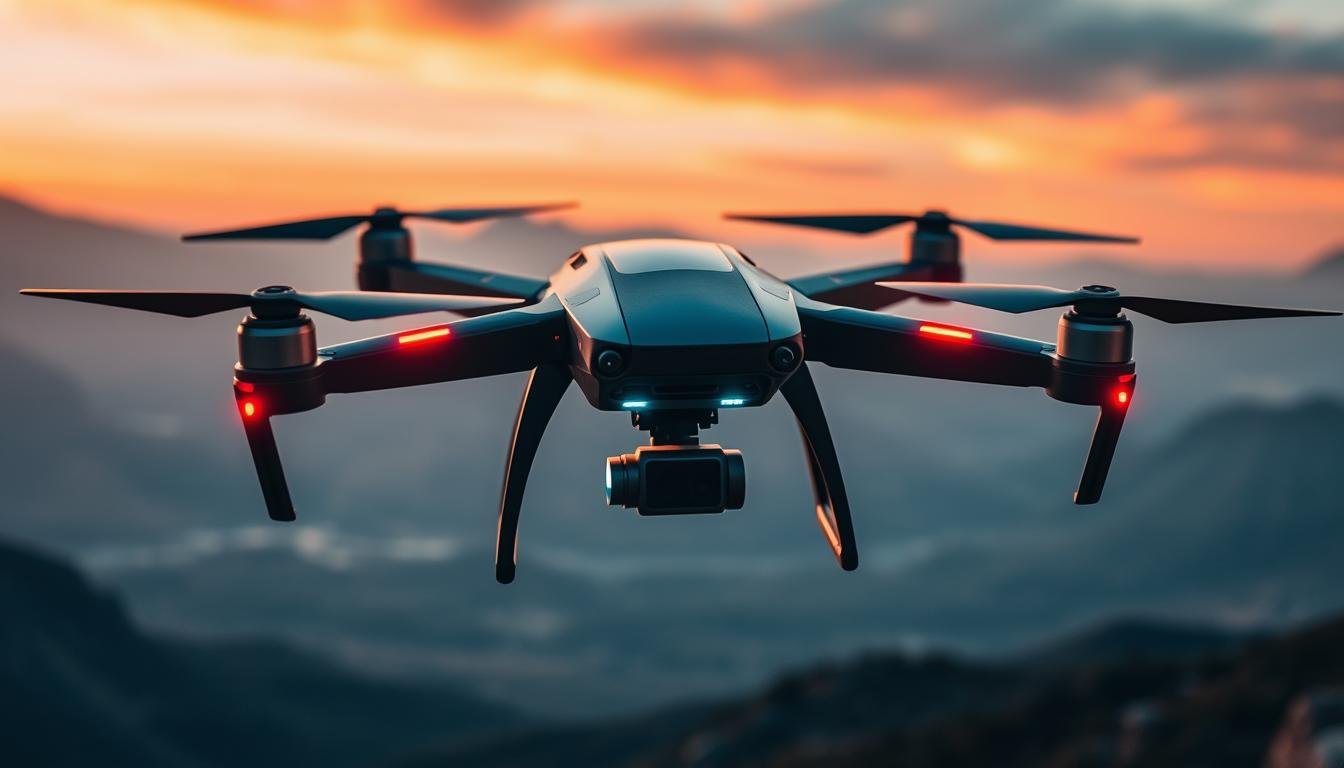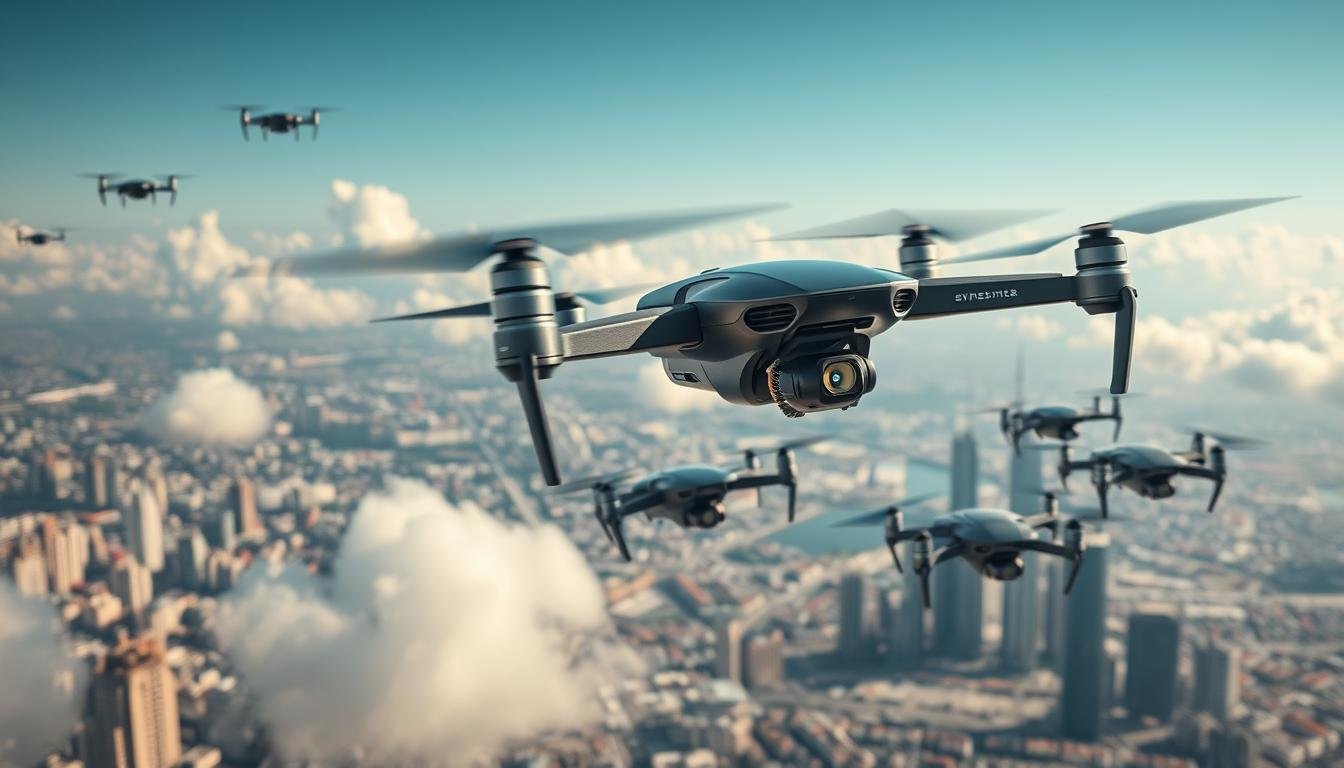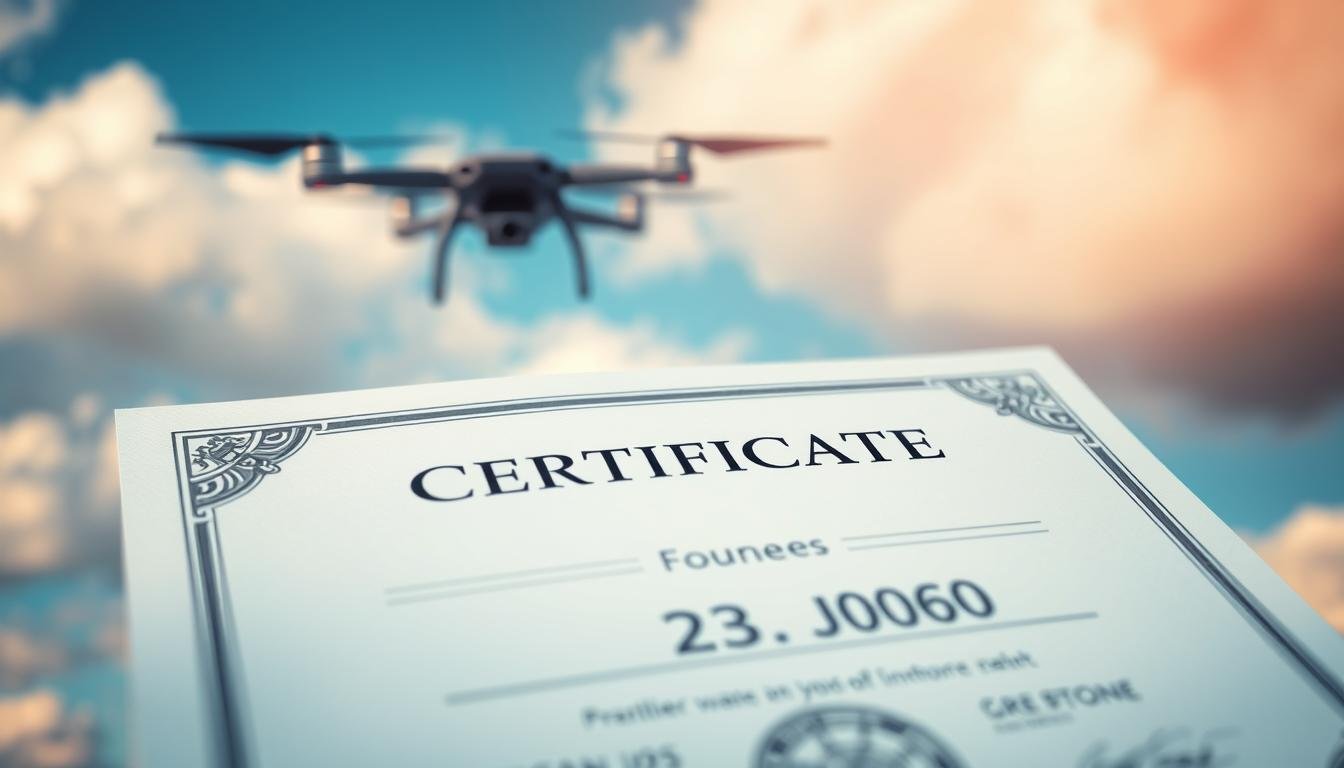A new law called the CCP Drone Act lays out precise guidelines for drone use. It specifies where and who is permitted to operate drones. By prohibiting drones from violating privacy or creating mishaps, the act contributes to everyone’s safety. Additionally, it permits companies to utilize drones for building surveys and delivery. Drone operators use their drones in a responsible and lawful manner by adhering to the CCP Drone Act. Drones are becoming increasingly prevalent in our daily lives, which makes this rule significant. It guarantees that drone use is equitable and safe for all users, safeguarding both persons and property.
Key Takeaways
- The CCP Drone Act aims to address national security concerns around Chinese-made drones, particularly from DJI.
- The legislation seeks to add DJI to the FCC’s Covered List, prohibiting new models of DJI drones from operating on U.S. communications networks.
- The Act has received overwhelming bipartisan support in the House and is now being considered in the Senate.
- Multiple U.S. government agencies have raised concerns about DJI’s ties to the Chinese Communist Party and its potential to enable surveillance and data collection.
- The legislation aims to safeguard U.S. airspace, critical infrastructure, and sensitive sites from the risks posed by Chinese-made drones.
Background on the Countering CCP Drones Act
The proposed Countering CCP Drones Act is about keeping the U.S. safe. It’s because of worries about DJI drones and the Chinese Communist Party (CCP). Since 2017, U.S. spies have said DJI might share secrets with the CCP. DJI says this isn’t true.
Concerns Raised by U.S. Government Agencies
Groups like Homeland Security, the Department of Defense, and the FBI are worried. They say Chinese drones could be a danger. This has led to the ccp drone act to stop DJI drones in the U.S.
DJI’s Alleged Ties to the Chinese Communist Party
DJI makes most of the world’s drones, with a share of 65% to 90%. The new law wants to stop DJI drones. It thinks DJI has ties to the CCP because it’s from China.
This law is part of a bigger plan. It’s to keep the U.S. safe from Chinese tech threats.
Key Provisions of the Countering CCP Drones Act
The Countering CCP Drones Act tackles national security worries about Chinese drones, especially DJI’s. It adds DJI to the FCC’s “Covered List.” This means new DJI drones can’t use U.S. communications networks.
Adding DJI to the FCC’s Covered List
Putting DJI on the FCC’s Covered List is a big step. It restricts Chinese drone access to U.S. communications. This move aims to keep Chinese drones out of U.S. critical systems, protecting national security.
Prohibiting New DJI Drone Models from U.S. Communications Networks
The Act also stops new DJI drones from using U.S. networks. This rule prohibits new DJI drone models from American communication systems. It limits Chinese drones in sensitive areas.
This Act tackles national security risks from Chinese drones, especially DJI’s. It encourages using secure, American-made drones instead.
Statements from Congresswoman Elise Stefanik
Congresswoman Elise Stefanik is a key supporter of the Countering CCP Drones Act. She sees this bill as a vital step. It aims to stop DJI’s control in the U.S. and keep our skies safe from Chinese drones.
Rep. Stefanik recently talked about the dangers of DJI drones. She said, “DJI drones are a big risk to U.S. security, as many U.S. officials have warned. The Countering CCP Drones Act wants to add DJI to the FCC’s Covered List. This would stop new DJI drones from flying in America.”
Stefanik also talked about the need to protect the U.S. drone industry. “The Act starts a transition to help U.S. drone companies grow,” she said. “It’s key to keep our skies safe and boost our drone industry for security and wealth.”
Stefanik’s strong support for the Countering CCP Drones Act shows her dedication. She wants to tackle the risks of Chinese drones and grow the U.S. drone sector. Her leadership shows the bill’s importance for our safety and economy.
National Security Risks Cited by U.S. Agencies
Chinese-made drones, like those from DJI, worry U.S. government agencies. The Department of Homeland Security, Department of Defense, and FBI say DJI shares data with China. This is a big national security issue.
Intelligence Reports and Advisories
These agencies say DJI drones are a risk. They point out DJI’s ties to the Chinese Communist Party. A letter from lawmakers urges local governments to stop using Chinese drones.
Inclusion on Entity Lists and Blacklists
The U.S. government has put DJI on entity lists and blacklists. This includes the Department of Commerce’s Entity List and the Department of the Treasury’s list. It makes it hard for DJI to do business in the U.S.
Even with these worries, DJI drones are still popular in U.S. law enforcement. But lawmakers want to use drones that are safer for national security.
“There are fears among engineers that logging in to a DJI platform could provide a point of access to servers, potentially enabling state-backed hacking operations.”
What happens in Fairfax County could be a guide for others. It’s about balancing drone technology, national security, and cost.
ccp drone act
The Countering CCP Drones Act got a big win in the House of Representatives. It passed with no votes against it. This shows that many lawmakers agree on the need to tackle the risks from Chinese drones.
Widespread Approval in the House
In March, Representative Elise Stefanik’s bipartisan Countering CCP Drones Act passed through the House Energy and Commerce Committee. It got no votes against it. This shows strong support from both parties.
Intelligence agencies have been worried about DJI since 2017. They think DJI shares sensitive data with the Chinese Communist Party. This has made many U.S. government agencies, like the Department of Homeland Security, the Department of Defense, and the FBI, support the bill.
The House passing this bill shows that fighting against Chinese-made drone risks is important. With support for countering ccp drones act and the house passage of legislation, the Senate will now consider it.
Concerns from the Drone Industry
The Countering CCP Drones Act aims to protect national security. But, it worries the drone industry. DJI, the top drone maker, is loved for being affordable and advanced. Yet, limiting access to these drones might slow the U.S. drone growth and raise costs for small businesses and first responders.
Impact on Small Businesses and First Responders
DJI drones help small farms grow more and spend less. They also aid first responders in search and rescue and disaster relief. A ban on Chinese drones could harm these important uses. It could slow down the drone industry and hurt the services it offers to communities.
| Metric | Value |
|---|---|
| Registered Drones in the U.S. (Aug 2024) | 785,827 |
| DJI’s Global Market Share | 70% |
| Potential Impact on Small Businesses | Increased costs, disruption of operations |
| Potential Impact on First Responders | Reduced access to affordable, capable drones for critical operations |
Finding a balance is key as the drone world grows. Policymakers need to think about the Act’s effects on small businesses and first responders. They should work with the industry to protect national security without blocking progress and innovation.
The Senate Version of the Countering CCP Drones Act
Senator Mark Warner (D-VA) and Senator Rick Scott (R-FL) have introduced a new version of the Countering CCP Drones Act. This version aims to blacklist DJI. It also supports American-made drones with a grant program for public safety agencies.
Senator Mark Warner’s Proposed Amendments
Senator Mark Warner’s amendments address concerns of first responders and small drone businesses. He wants to ensure American leadership in the drone industry. He also wants to prevent disruptions from the Chinese Communist Party (CCP).
Support for First Responders and Public Safety Agencies
The Senate version of the Countering CCP Drones Act creates a grant program. It helps public safety agencies, like police and fire departments, replace Chinese drones with American ones. This supports first responders and ensures they have secure drone technology.
| Statistic | Value |
|---|---|
| Public safety agencies with drone programs that opposed the Countering CCP Drones Act | Over 6,000 |
| Estimated closure of small U.S. drone businesses due to the DJI ban | 67% |
| Year the American Security Drone Act, banning Chinese drones for federal agencies, was passed | 2024 |
The Senate’s version of the National Defense Authorization Act (NDAA) for Fiscal Year 2025 has more funding for drone manufacturing. It also aims to develop a secure supply chain for small Unmanned Aerial Systems (UAS). The NDAA lets the Department of Defense work with civil authorities to address UAS threats at U.S. borders.
The legislative process for the Countering CCP Drones Act and the NDAA FY25 involves several steps. If the House and Senate pass different versions, there’s a conference committee. If needed, a Congressional override of the President’s veto requires a two-thirds majority vote in both the House and Senate.
Next Steps for the Legislation
The Countering CCP Drones Act passed the House. Now, the Senate must review it. They might add it to the National Defense Authorization Act (NDAA) for Fiscal Year 2025. This bill, led by Congresswoman Elise Stefanik (R-NY), aims to tackle the risks from Chinese drones, especially DJI’s.
If the Senate agrees, they’ll need to match the House’s version. This step, called reconciliation, is key. It needs a majority in the House and 60 votes in the Senate to succeed.
Reconciliation with the House Version
The House voted 217:199 for the NDAA, which includes the Countering CCP Drones Act. The Senate has not voted yet. After both chambers agree, a committee will fix any differences.
This process is vital. It makes sure the final bill meets both the House and Senate’s goals. Passing this bill would be a big win against Chinese drone threats.
Potential Inclusion in the FY25 NDAA
The Countering CCP Drones Act might be part of the FY25 NDAA. The House Committee voted 57:1 for the NDAA. The Senate also voted, but the final bill’s details are still being worked out.
With support from both parties, the Act might make it into the FY25 NDAA. This would bring national rules to tackle Chinese drone risks.
| Milestone | Status |
|---|---|
| House NDAA FY25 Passage | Passed 217:199 |
| House Committee NDAA Passage | Passed 57:1 |
| Senate NDAA FY25 Markup | Passed 22:3 |
| Senate NDAA FY25 Vote | Not Yet Reviewed |
| Reconciliation with House Version | Pending |
| Presidential Approval | Pending |
Watching the Countering CCP Drones Act’s journey is key. The bill’s support and growing security worries suggest a positive path. It might be included in the FY25 NDAA after reconciliation.
Balancing National Security and Industry Growth
The Countering CCP Drones Act aims to protect national security. But, it might hurt the drone industry. Finding a balance is key for the U.S. to grow a strong drone industry.
In 2022, the U.S. banned new Chinese tech imports due to security worries. The CHIPS and Science Act gives $53 billion for domestic tech. This shows the U.S. wants to use less foreign tech.
Acts like the Countering CCP Drones Act aim to limit Chinese drones. But, this could slow down the drone industry’s growth. With help, the U.S. could match DJI in three to five years. Without it, it might take seven to 10 years.
Elise Stefanik’s efforts to add DJI to a security list and impose tariffs on Chinese drones are causing frustration. The drone industry feels attacked by politics. They suggest focusing on cybersecurity for all drones. This way, the industry can grow while keeping safety and innovation.
“The U.S. should follow China’s example of growing a robust domestic industry by kicking out foreign companies and supporting domestic companies,” suggests Allan Evans, an expert on the drone industry.
The Countering CCP Drones Act brings many challenges. It’s important to balance national security with growing the drone industry. This balance will help the U.S. stay competitive in the drone market and protect its interests.
DJI’s Response and Security Measures
DJI has responded to concerns about its drones. It shows its long-term commitment to drone security and safety. The company has done regular third-party security audits. It also has more privacy controls for its drones.
DJI follows industry standards and helps make drone use safe and secure.
Third-Party Audits and Privacy Controls
Since 2017, DJI has had third-party security audits. This ensures its drones protect data and privacy well. The company has also improved privacy controls. Now, users have more ways to handle their drone’s data.
Commitment to Safe and Secure Drone Operations
DJI drones are used by many in the U.S., like federal agencies and emergency teams. The company wants to make drone use safe and secure. It follows rules and focuses on peaceful uses of its technology.
| Statistic | Data |
|---|---|
| DJI market dominance | DJI sells more than half of all drones in the U.S. market |
| Countering CCP Drones Act | The U.S. House of Representatives passed the Countering CCP Drones Act (HR 2864) in April 2023 |
| DJI security audits | DJI has invested in security audits since 2017 |
| DJI data collection | DJI drones do not collect flight logs, photos, or videos by default |
DJI keeps working to address concerns about its drones. It talks to lawmakers to clear up misunderstandings. DJI focuses on security, privacy, and safe drone use. It wants to stay a trusted name in the drone world.
Conclusion
The Countering CCP Drones Act is a big step for the U.S. in dealing with Chinese drones. It focuses on drones from DJI, a leading company. This law aims to keep these drones out of key U.S. areas.
But, we need to think about how this will affect the drone world. The law could help small U.S. drone makers grow. Yet, it might also make drones harder for public safety to get.
Now, we must work together to find a good solution. We need to keep the U.S. safe while also letting drones help our communities. This way, the U.S. drone industry can grow and help us in many ways.

